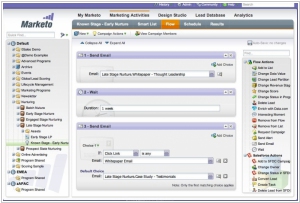Adobe Experience Cloud vs Marketo
June 03, 2023 | Author: Sandeep Sharma
10
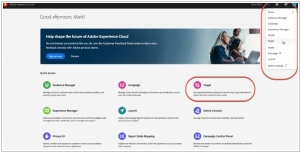
Adobe Experience Cloud gives you the most complete set of integrated digital marketing solutions available. It provides everything you need to organize, access, and personalize your marketing content. It gives you deep insights into what’s working with your customers and the ability to consistently deliver the best experiences to every customer across every channel.
Adobe Experience Cloud and Marketo are both powerful digital marketing platforms, but they differ in their scope and functionality.
Adobe Experience Cloud is a comprehensive suite of marketing tools that encompasses various products and services to help businesses deliver personalized and engaging customer experiences. It includes solutions for web content management, digital asset management, customer analytics, advertising, and more. Adobe Experience Cloud is designed to provide end-to-end customer experience management, enabling businesses to create, optimize, and measure their digital marketing efforts across multiple channels.
Marketo, on the other hand, is a standalone marketing automation platform that focuses on lead management, nurturing, and marketing campaign automation. It offers features such as lead scoring, email marketing, landing page creation, and customer journey mapping. Marketo is particularly popular among B2B marketers for its robust lead management capabilities and ability to drive personalized, targeted marketing campaigns.
See also: Top 10 Marketing software
Adobe Experience Cloud is a comprehensive suite of marketing tools that encompasses various products and services to help businesses deliver personalized and engaging customer experiences. It includes solutions for web content management, digital asset management, customer analytics, advertising, and more. Adobe Experience Cloud is designed to provide end-to-end customer experience management, enabling businesses to create, optimize, and measure their digital marketing efforts across multiple channels.
Marketo, on the other hand, is a standalone marketing automation platform that focuses on lead management, nurturing, and marketing campaign automation. It offers features such as lead scoring, email marketing, landing page creation, and customer journey mapping. Marketo is particularly popular among B2B marketers for its robust lead management capabilities and ability to drive personalized, targeted marketing campaigns.
See also: Top 10 Marketing software
Adobe Experience Cloud vs Marketo in our news:
2023. Adobe brings product analytics to its Experience Cloud
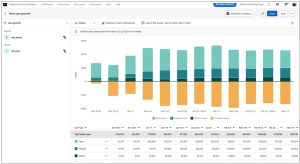
Adobe has introduced a novel analytics solution named Adobe Product Analytics, intended for product teams. The service is designed to provide such teams access to crucial metrics related to product lifecycles that were traditionally compartmentalized within different teams within an organization and had to be obtained through data analysts. Adobe Product Analytics is built on the omnichannel Customer Journey Analytics (CJA) service, with product teams being the initial targeted users. However, Adobe plans to create solutions for other personas as well. With this solution, all CJA users now have a shared analytics language and framework. The service also features a guided analysis capability to assist product teams in posing the right questions to gain insights, such as identifying patterns in engagement over time or recognizing obstacles in transitioning users from app usage to higher engagement.
2019. Latest Adobe tool helps marketers work directly with customer journey data
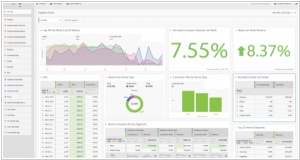
Adobe is actively advancing its Analytics capabilities within the Adobe Experience Cloud, an integrated platform designed to collect and analyze customer data for improved insights. Recently, the company introduced a new analytics tool that empowers employees to directly engage with customer journey data, aiming to enhance the overall customer experience. The customer journey encompasses numerous systems, including a company's data lake, CRM, and point of sale. This tool effectively consolidates data from multiple systems and channels, aggregating them within the data analysis workspace, which was initially announced in July. By centralizing and streamlining the data analysis process, Adobe is equipping businesses with the means to comprehensively understand their customers and optimize their interactions.
2018. Adobe acquires Marketo for $4.75 billion
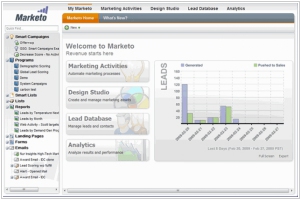
Adobe has announced its acquisition of the marketing automation company Marketo for a significant $4.75 billion. This strategic move positions Adobe strongly in the enterprise marketing arena, pitting it against major competitors like Salesforce, Microsoft, Oracle, and SAP. The acquisition not only bolsters Adobe's Marketing Cloud portfolio but also grants access to Marketo's expansive customer base of 5000 organizations. This presents a valuable opportunity for Adobe to drive revenue growth in this particular segment of its offerings, while intensifying its competitive edge within the enterprise market. With the integration of Marketo, Adobe is poised to further solidify its position and expand its reach in the realm of marketing automation.
2017. Adobe Campaign gets AI-features
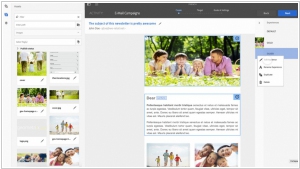
Adobe has unveiled several enhancements for its email marketing tools in Adobe Campaign. While many of these features are already accessible, such as improved dashboards, new email templates, and enhanced support for multilingual campaigns, the most intriguing additions are the new machine learning-powered capabilities. These advancements enable the identification of optimal subject lines for emails and, in the near future, suggest personalized images for specific recipients who open marketing emails. Another noteworthy predictive feature demonstrated by the company is a tool that predicts customer churn based on their email engagement patterns. Although this employs conventional machine learning techniques, the accuracy of such predictions heavily relies on the quality of the input data. When combined with data from Campaigns, this tool can anticipate when a customer is likely to unsubscribe from a service, offering valuable insights to businesses.
2017. Marketo picks Google Cloud to migrate from on-prem data centers
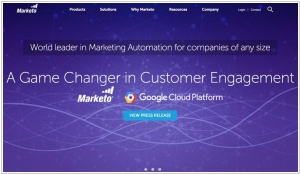
Marketo, the marketing automation platform, has made the strategic decision to migrate its entire on-premises operation to the Google Cloud Platform. This collaboration goes beyond mere hosting, as Google will offer enhanced integration with GSuite. As a result, Marketo customers will enjoy the ability to create content and engage with their customers directly from the Marketo platform, leveraging popular Google tools such as Gmail, Sheets, and Hangouts Chat. Additionally, Marketo has outlined plans to leverage Google BigQuery for advanced analytics and utilize Google's machine learning APIs to unlock improved marketing insights for its clientele. By embracing this partnership, Marketo aims to empower its customers with an enriched experience and enable more effective marketing strategies.
2016. Vista Equity Partners acquired marketing platform Marketo
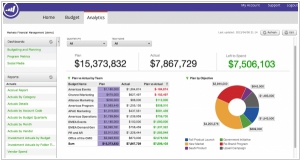
San Francisco-based Vista Equity Partners has entered into an agreement to acquire the online marketing platform Marketo for a sum of $1.79 billion. This strategic acquisition will enable Marketo to maintain its unwavering commitment to customer success and retain its position as a leading independent player in the market. Marketo will continue to spearhead product innovation and thought leadership within the digital marketing industry, setting the agenda for the future. Furthermore, this partnership will empower Marketo to fulfill its ambitious vision of providing an ultra-scalable enterprise platform for customer engagement, catering to the needs of tomorrow's marketers and the C-suite.
2015. Marketing platform Marketo adds LinkedIn integration
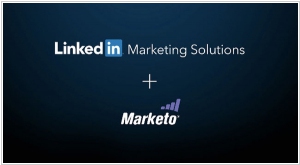
The engagement marketing platform Marketo has introduced integration with the lead-generation and nurturing solution provided by the professional networking site LinkedIn. This integration aims to assist marketers in bridging the gap between digital, social, and offline channels, ultimately facilitating meaningful conversations with customers. According to a blog post by LinkedIn officials, the solution effectively addresses the issue of prospect abandonment. When a prospect visits a webpage but closes their browser without taking further action, they are not forgotten. Instead, they are nurtured through a series of messages across various channels, including LinkedIn social ads, display ads, and more. When the prospect later completes a form, their email and other relevant information are captured in Marketo's system. Subsequently, the prospect receives targeted emails, display ads, and social ads tailored to their demographics, website behavior, and engagement with the company's content.
2015. Marketing platform Adobe Campaign adds new integrations
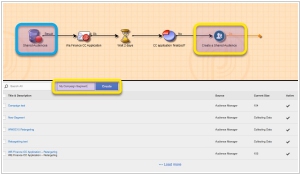
The latest integrations introduced in Adobe Campaign encompass various features aimed at providing contextually relevant email experiences, shoppable media encounters, and seamless integration across the Adobe Marketing Cloud solutions. The objective is to empower marketers with the ability to capture the most appropriate email content precisely when a prospect opens an email. This is made possible by leveraging contextual data obtained from Adobe Target and Adobe Campaign, including information such as purchase history, interests, time, location, demographic details, and more. The email content can dynamically adapt while it resides in the inbox or even be updated later as additional contextual data is gathered. Moreover, integration work has been done with Adobe Experience Manager to automate the personalization process, reducing the need for manual coding and catering to the drag-and-drop approach preferred by many marketers. Adobe strives to deliver enhanced capabilities that enable marketers to provide personalized experiences effortlessly.

